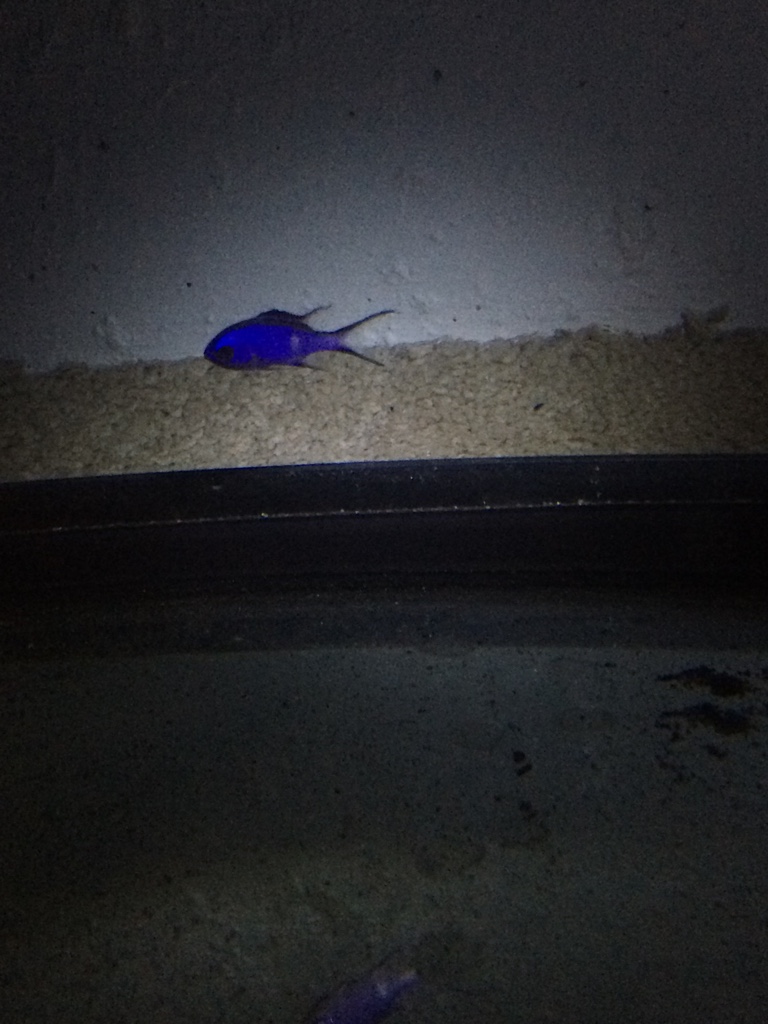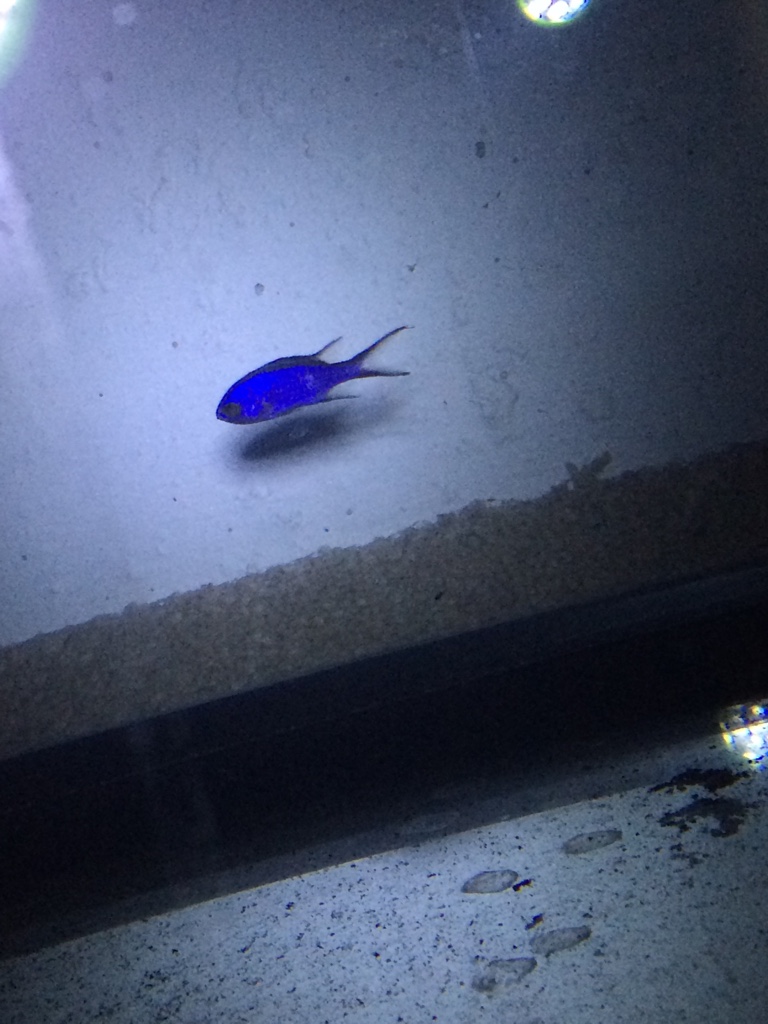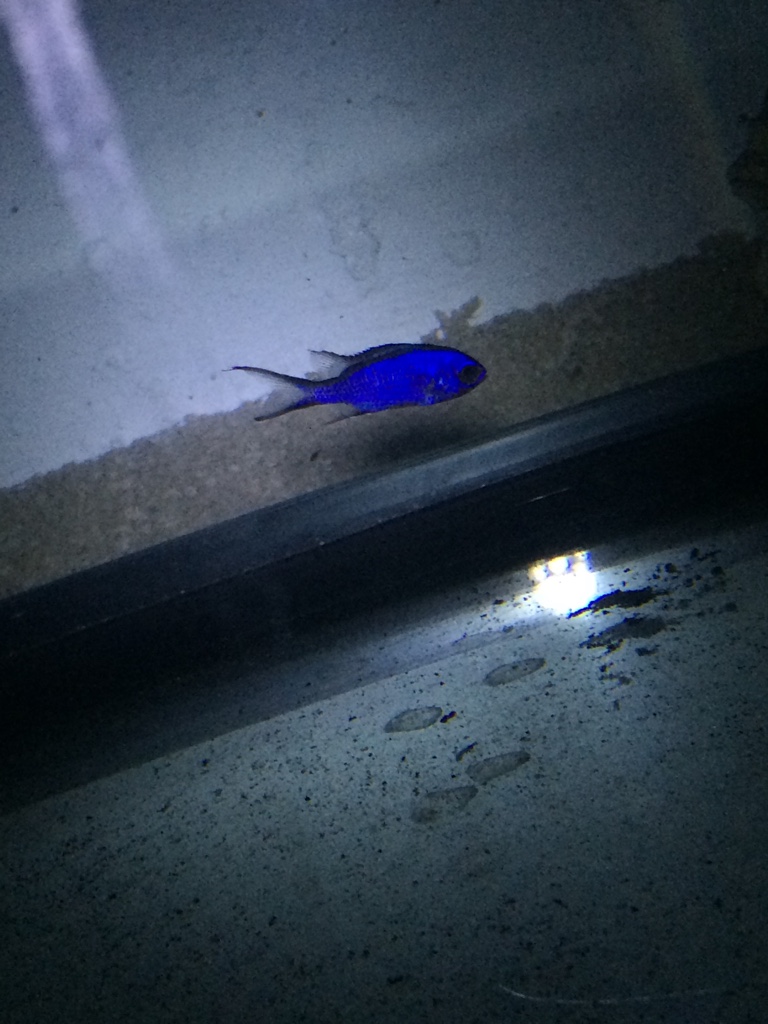So I've had a group of 3 BRC for 2 weeks now and the smallest of which has some brown coloration on its left side above the anal fin. It also has a slight abrasion to its right gill which doesn't seem to be bothersome.
I'm fairly sure these are just wounds from picking at each other but I want a 2nd opinion. They were initially in a group of 4 but 1 of the medium sized chromis was getting curious about the power head I have in there... When I bought them, all but the largest had the same brown splotches on their sides.
It is very difficult to get clear pictures of these guys in my 46 quarantine so I do apologize for those
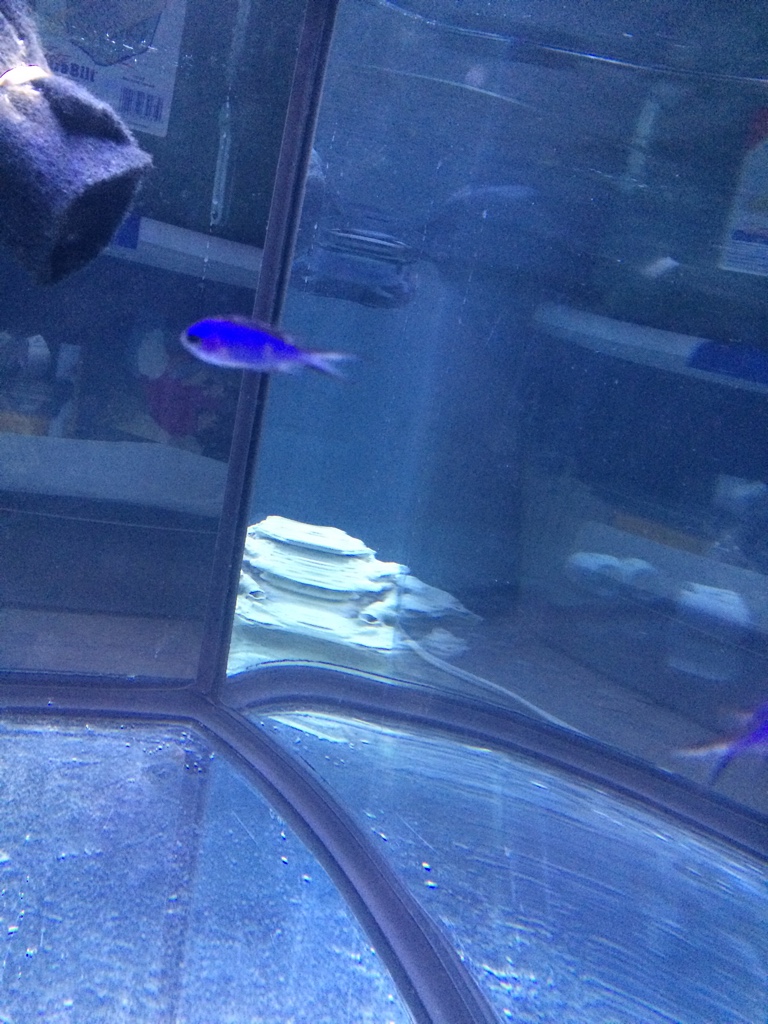
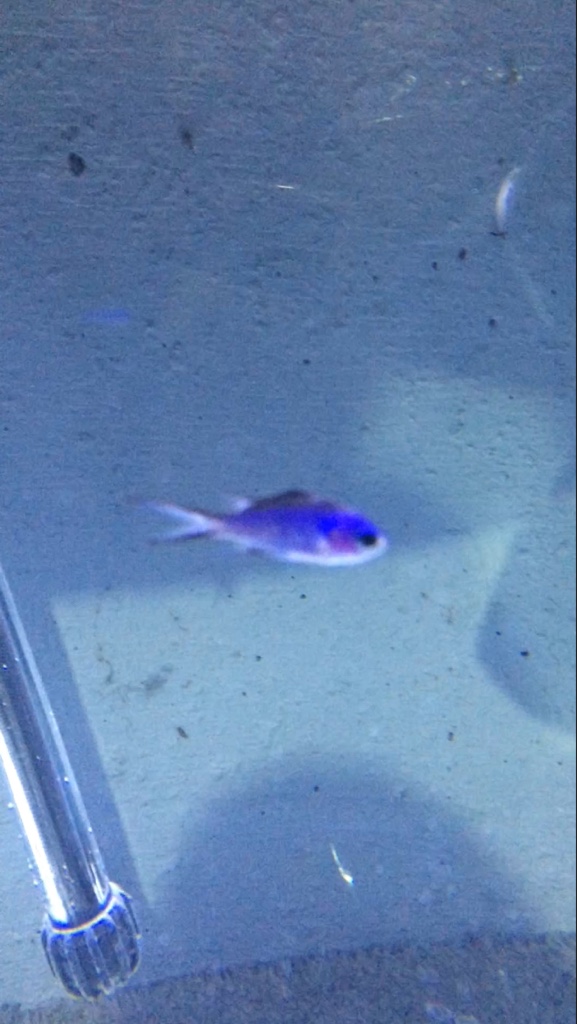 (these pics are of the smallest chromis)
(these pics are of the smallest chromis)
I'm fairly sure these are just wounds from picking at each other but I want a 2nd opinion. They were initially in a group of 4 but 1 of the medium sized chromis was getting curious about the power head I have in there... When I bought them, all but the largest had the same brown splotches on their sides.
It is very difficult to get clear pictures of these guys in my 46 quarantine so I do apologize for those









